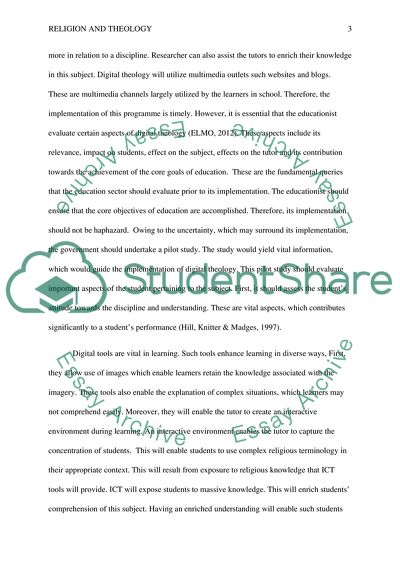Cite this document
(Development and Religion: Theology and Practice Literature review Example | Topics and Well Written Essays - 1500 words, n.d.)
Development and Religion: Theology and Practice Literature review Example | Topics and Well Written Essays - 1500 words. https://studentshare.org/religion-and-theology/1779344-implementation-of-digital-theology-in-primary-education-in-uk-using-social-media-social-networks-managed-learning-environments-and-ict-tools-software-and-hardware-risks-and-challenges
Development and Religion: Theology and Practice Literature review Example | Topics and Well Written Essays - 1500 words. https://studentshare.org/religion-and-theology/1779344-implementation-of-digital-theology-in-primary-education-in-uk-using-social-media-social-networks-managed-learning-environments-and-ict-tools-software-and-hardware-risks-and-challenges
(Development and Religion: Theology and Practice Literature Review Example | Topics and Well Written Essays - 1500 Words)
Development and Religion: Theology and Practice Literature Review Example | Topics and Well Written Essays - 1500 Words. https://studentshare.org/religion-and-theology/1779344-implementation-of-digital-theology-in-primary-education-in-uk-using-social-media-social-networks-managed-learning-environments-and-ict-tools-software-and-hardware-risks-and-challenges.
Development and Religion: Theology and Practice Literature Review Example | Topics and Well Written Essays - 1500 Words. https://studentshare.org/religion-and-theology/1779344-implementation-of-digital-theology-in-primary-education-in-uk-using-social-media-social-networks-managed-learning-environments-and-ict-tools-software-and-hardware-risks-and-challenges.
“Development and Religion: Theology and Practice Literature Review Example | Topics and Well Written Essays - 1500 Words”. https://studentshare.org/religion-and-theology/1779344-implementation-of-digital-theology-in-primary-education-in-uk-using-social-media-social-networks-managed-learning-environments-and-ict-tools-software-and-hardware-risks-and-challenges.


